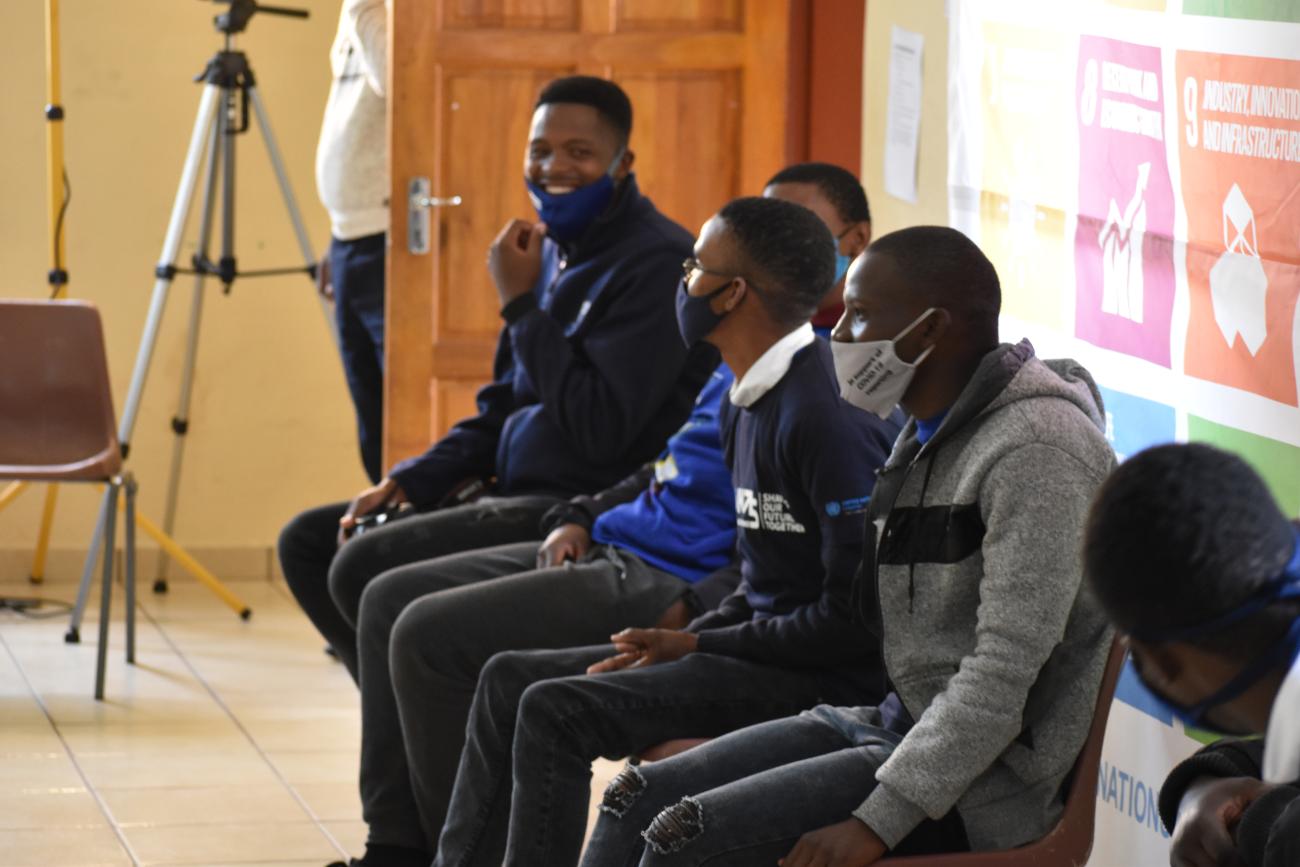The UN Shares an Inspiring UN75 Dialogue with Young Men

In commemoration of the UN's 75th anniversary, the UN shared an inspiring UN75 Dialogue with young men, in collaboration with Kwakha Indvodza.
In an attempt to hear from those at risk of being left behind during the COVID-19 pandemic, the UN hosted a UN75 Dialogue with young men on Friday, 7th August. The conversation was held in collaboration with Kwakha Indvodza; the first male mentoring organization in Eswatini which seeks to mentor boys and young men in health, social and financial responsibility, ultimately creating a healthier, more resilient and gender equal nation.
Over 40 young men shared an inspiring conversation about how they have embraced the COVID-19 pandemic to grow as individuals and entrepreneurs, the effects of the pandemic, the future they envision, challenges to create that vision and how to overcome them.
Young people have faced immense challenges both before and during the pandemic with the United Nations Secretary-General, Mr António Guterres, noting how the world is at risk of losing a generation of youth due to the set-backs of the COVID-19 pandemic. With over 1.8 billion young people across the globe, aged 10 to 24, one of every five young people were already not in education, training or employment. One of every four is affected by violence or conflict. These numbers have been increased dramatically throughout the COVID-19 pandemic.
The Kingdom of Eswatini, with a population of 1.1 million people, has approximately 240,000 young people aged 15 to 24 and 433,000 children between ages 0 to 14; all of whom are at great risk of being left behind in the nation’s recovery from the spread of coronavirus.
The young men shared how the COVID-19 pandemic has enabled them to have the time to be creative and start their own projects, businesses and income-generating activities. One young man expressed; “There were other job opportunities in the pandemic such as raising awareness of COVID-19. I was therefore able to work to earn an income and study.”
Selenda Rodger Dennis, a 19 year-old young man, shared how he started his own informal carpentry business with his two friends and business partners during the pandemic, saying; “Two months ago, we undertook classes in carpentry; Kwakha Indvodza took us for an apprentice programme. One day, I made a TV stand and someone said they liked it and wanted to buy it for E1,500. I split the money with my colleagues and since then, we have been making furniture and designs for people. We are planning to start our own formal carpentry business making custom furniture, provided the materials. Kwakha Indvodza offered us the opportunity to lend us their tools as we still don’t have the capital to buy our own.”
Despite the opportunities embraced by the young men during the pandemic, they still faced immense disruption in their education and limited opportunities for employment. A young man stated; “The future of young people has been affected through loss of income, GBV and lack of education. We don’t have the same resources at home than we do elsewhere. Many young people have been exposed to substance-abuse which further affects futures. Mental health has also been affected.”
Attendees shared their vision for the future, expressing how they’d like to see a world in which there are better living standards and opportunities for everyone, with an improved education system, no poverty and investment in Eswatini. “I wish to see leadership: corruption is significant. We need to change our mindsets to not point fingers and become leaders where we are. Education and vocational facilities need to be improved,” said a participant.
The young men continued to suggest solutions to overcoming the obstacles to achieve this vision, saying; “It starts with the individual: we have to be the change that we wish to see. We must encourage each other, help one another and grow together.”
Participants suggested that the Government and private sector try to invest in youth and create job opportunities, allowing outside investors to enter the country. Investment in skilled work, including skills-training in the school curriculum as well as greater support for talent and creatives within the country were suggested.
The United Nations continues to advocate for the rights of the most vulnerable, with the UN Secretary-General saying; “Young people are not subjects to be protected, but should be seen as citizens with equal rights, as full members of our societies, and as powerful agents for change,”
“The world cannot afford a lost generation of youth, their lives set back by COVID-19 and their voices stifled by a lack of participation,”
Let us do far more to tap their talents as we tackle the pandemic and chart a recovery that leads to a more peaceful, sustainable and equitable future for all.”
The inequalities, vision and solutions shared by the young men will be compiled into a report and presented to the UN General Assembly in September; at which Eswatini will hold the honoured position as Vice President.

















